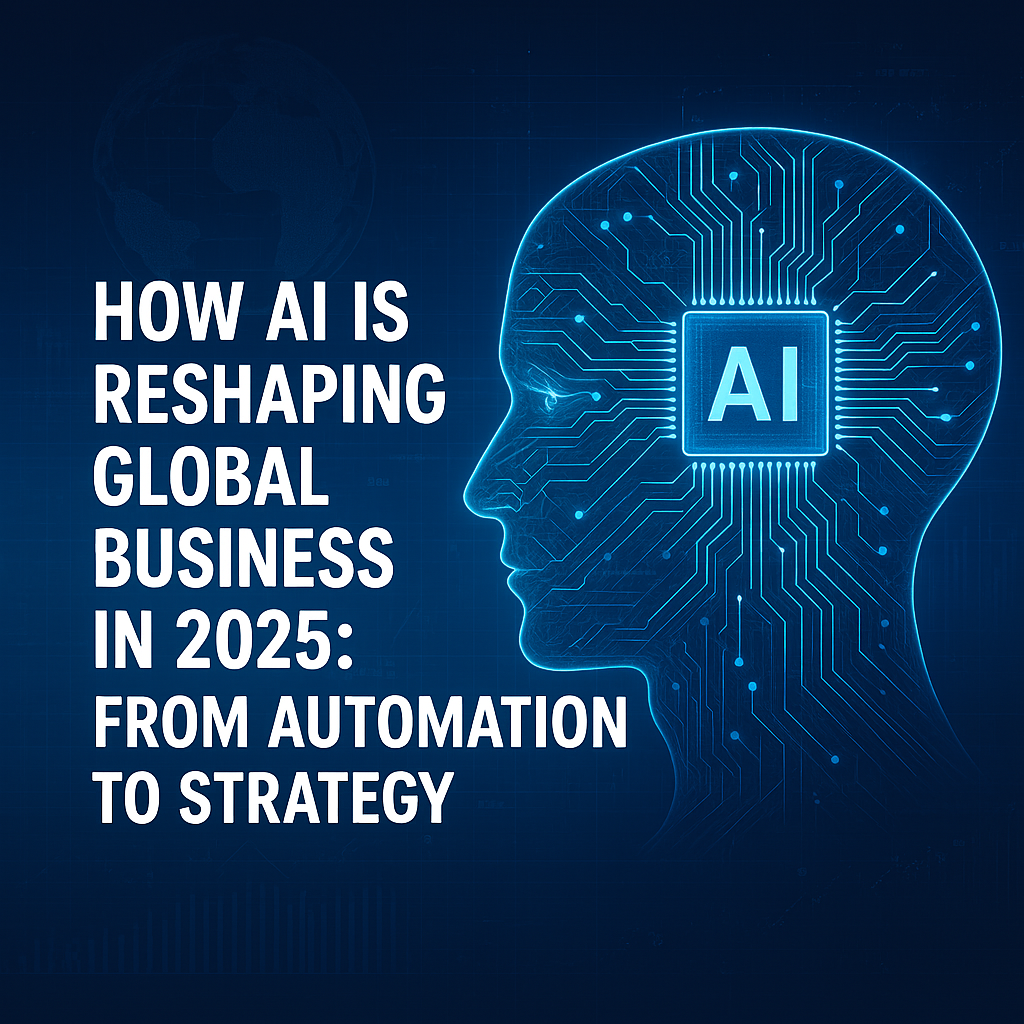
In 2025, artificial intelligence (AI) has firmly transitioned from a disruptive trend to a core business asset. No longer confined to automating repetitive tasks, AI is now embedded deep within strategic decision-making processes, product innovation, customer experience, and operational frameworks. The question is no longer if businesses should adopt AI, but how fast they can leverage it to stay competitive.
1. From Efficiency to Intelligence: The New AI Paradigm
In previous years, AI was primarily used for efficiency—automating data entry, processing invoices, or predicting demand patterns. Today, it’s helping executives make high-stakes decisions using real-time data models, forecasting tools, and generative AI technologies that simulate outcomes before implementation.
For instance, multinational retail chains use AI-driven simulations to test pricing strategies across diverse markets. This allows companies to optimize revenue without risking real-world performance. AI isn’t just about speed; it’s about foresight.
2. Generative AI: The Creative Business Partner
The rise of generative AI models like GPT-5 and DALL·E 4 has redefined what machines can create. Marketing departments now generate high-quality ad copy, social media content, and product mockups in minutes. Legal teams are using AI to draft documents, while R&D departments are co-creating with AI to develop new product features based on consumer behavior.
A report by McKinsey estimates that generative AI could add up to $4.4 trillion annually to the global economy—mainly through improved productivity and faster innovation cycles.
3. AI and Workforce Transformation
The integration of AI has shifted workforce dynamics. While some low-skill roles are being phased out, new positions have emerged in AI governance, prompt engineering, and ethical data management. Companies that invest in AI upskilling programs are retaining talent, fostering innovation, and improving internal adoption rates.
Amazon, for example, has committed $1.2 billion to reskilling 300,000 employees with AI and cloud computing skills by 2026.
4. Strategic Integration, Not Just Adoption
In 2025, AI is no longer a side project or innovation lab experiment—it’s integrated across every layer of strategy. Businesses are aligning AI initiatives with long-term goals: improving customer lifetime value, reducing churn, expanding into new markets, and personalizing product offerings.
AI is also becoming a boardroom topic. Chief AI Officers (CAIOs) are joining executive teams in Fortune 500 companies, advising on ethics, bias prevention, and AI compliance with evolving global regulations.
5. Navigating the Ethical Landscape
As AI becomes smarter and more autonomous, businesses face increasing pressure to use it responsibly. Privacy concerns, algorithmic bias, and transparency are under intense scrutiny. Regulatory bodies in the U.S., Europe, and Asia are rapidly implementing AI-specific compliance frameworks.
Forward-thinking businesses are already investing in explainable AI (XAI) models and third-party audits to ensure their algorithms align with both legal requirements and social expectations.
⸻
Final Thoughts: AI as the Compass of Modern Business
In 2025, AI is not just a tool—it’s the compass guiding businesses through an era defined by uncertainty, competition, and innovation. Those who embrace AI strategically, ethically, and creatively are not just surviving—they’re leading.
The future of business belongs to the intelligent, and AI is the intelligence engine powering it forward.